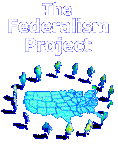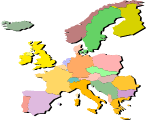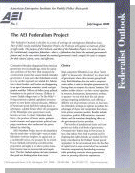|
|
WITHER THE OLD CONTINENT?�
With the establishment, in December 2001, of a Constitutional Convention, the European Union embarked on an ambitious course towards a political union and a larger, more centralized and �federalist� Europe. Some observers welcomed this development as a necessary move both towards further economic liberalization and towards the democratization of bureaucratic, unaccountable European institutions. Others view the EU�s constitutional project as a menacing step towards greater centralized political control over the European market and towards a neo-mercantilist defense of a �European way of life� against the perceived threats of globalization and U.S. hegemony. While the final constitutional tinkering is underway, its momentous potential� warrants examination. In April of 2002, the Federalism Project convened two distinguished panels to help stimulate the discussion. Transcript here.� The Economist answers your hardest questions
Recommended Reading
Publius lives, and he's suspicious. See Federalist Outlook #10: New Insights from an Old Continent�
Speech by Michael Greve, Citizens or Consumers: Federalism Between Politics and Markets delivered at the Institute for United States Studies, London (January 2002).
Robert Kagan on why the Europeans are different Power and Weakness, Policy Review (June 2002).
Of Related Interest
In June of 2002, the Federalism Project hosted a discussion on globalization and its impact on American local government. The panel featured Columbia Professor/Demos Adjunct Fellow Mark Gordon, Professor Earl Fry, and Former US Ambassador/Permanent Representative to the OECD David Aaron � � |




 Free
Trade vs. States' Rights: Globalization and the Challenge to Local
Democratic Government
Free
Trade vs. States' Rights: Globalization and the Challenge to Local
Democratic Government